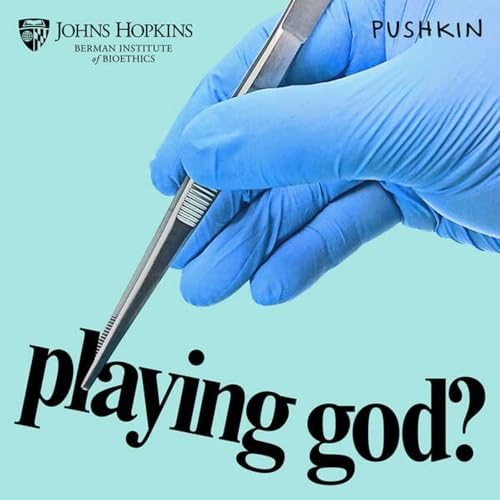Episodes
-
 Dec 12 202321 mins
Dec 12 202321 minsFailed to add items
Sorry, we are unable to add the item because your shopping basket is already at capacity.Add to cart failed.
Please try again laterAdd to wishlist failed.
Please try again laterRemove from wishlist failed.
Please try again laterFollow podcast failed
Unfollow podcast failed
-
 Dec 5 202334 mins
Dec 5 202334 minsFailed to add items
Sorry, we are unable to add the item because your shopping basket is already at capacity.Add to cart failed.
Please try again laterAdd to wishlist failed.
Please try again laterRemove from wishlist failed.
Please try again laterFollow podcast failed
Unfollow podcast failed
-
 Nov 28 202332 mins
Nov 28 202332 minsFailed to add items
Sorry, we are unable to add the item because your shopping basket is already at capacity.Add to cart failed.
Please try again laterAdd to wishlist failed.
Please try again laterRemove from wishlist failed.
Please try again laterFollow podcast failed
Unfollow podcast failed
-
 Nov 21 202328 mins
Nov 21 202328 minsFailed to add items
Sorry, we are unable to add the item because your shopping basket is already at capacity.Add to cart failed.
Please try again laterAdd to wishlist failed.
Please try again laterRemove from wishlist failed.
Please try again laterFollow podcast failed
Unfollow podcast failed
-
 Nov 14 202329 mins
Nov 14 202329 minsFailed to add items
Sorry, we are unable to add the item because your shopping basket is already at capacity.Add to cart failed.
Please try again laterAdd to wishlist failed.
Please try again laterRemove from wishlist failed.
Please try again laterFollow podcast failed
Unfollow podcast failed
-
 Nov 7 202335 mins
Nov 7 202335 minsFailed to add items
Sorry, we are unable to add the item because your shopping basket is already at capacity.Add to cart failed.
Please try again laterAdd to wishlist failed.
Please try again laterRemove from wishlist failed.
Please try again laterFollow podcast failed
Unfollow podcast failed
-
 Oct 31 202325 mins
Oct 31 202325 minsFailed to add items
Sorry, we are unable to add the item because your shopping basket is already at capacity.Add to cart failed.
Please try again laterAdd to wishlist failed.
Please try again laterRemove from wishlist failed.
Please try again laterFollow podcast failed
Unfollow podcast failed
-
 30 mins
30 minsFailed to add items
Sorry, we are unable to add the item because your shopping basket is already at capacity.Add to cart failed.
Please try again laterAdd to wishlist failed.
Please try again laterRemove from wishlist failed.
Please try again laterFollow podcast failed
Unfollow podcast failed

